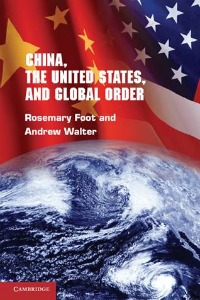
Paralysis or Metamorphosis? A debate on the Eurozone Crisis and its implications for the EU
On Wednesday, 29 February, 2012, the Oxford European Studies Centre hosted two esteemed guests: Daniel Cohn-Bendit, co-president of the European Greens in the European Parliament and renowned activist of the French left; and Edouard Gaudot, researcher for the European Greens and member of the Spinelli Group. The event offered a lively discussion regarding the ramifications of the European crisis, particularly in light of recent events regarding the Greek debt. Mr. Cohn-Bendit began the debate by characterizing the current climate as “a turning point in European history, because the European Union is confronted with one of its most serious crises, caused by the financial crisis”. In reference to its efforts to grapple with economic catastrophe, he contended that the EU is …
The risks of the current approach to Greece and the Euro-crisis
Last week, I debated how much more the Greek nation can take given the enormous internal and external pressures on families, society and the nation. When discussing this with my friend and colleague Pavlos Efthymiou, we realised that some important points were missing and have rewritten the article together (also published on ELIAMEP). Mainstream International Relations (IR) thinking (see Realism, Liberalism) holds that the national interest drives states to act the way they do on the international stage. This post-hoc rationalising to explain policy outcomes works successfully enough to be employed by the majority of policy-makers, academics, and analysts to inform their audiences. However, what they are often missing is how such an interest comes about and what it is …

China, the United States, and Global Order: An Interview with Professor Rosemary Foot
Rosemary Foot is a Professor of International Relations and John Swire Senior Research Fellow at St Antony’s College, Oxford. She has been a celebrated China scholar since completing her doctorate at the London School of Economics on Sino-Soviet relations and West Asia. Here, Professor Foot takes a moment to speak with Politics in Spires regarding her most recent book. Congratulations, your latest book, China, the United States, and Global Order has been praised by Foreign Policy Magazine as one of the 23 Essential Readings of 2011. Could we begin with you telling us a bit about the efforts behind this work? The book was a collaborative effort.* My co-author [Andrew Walter] is a specialist in international political economy, and I …
Resource control: Right or Privilege?
‘Resource control is a right. It is not a privilege’ -A member of a peaceful youth rally in the Niger Delta, from the film Sweet Crude. In the first couple of minutes of the opening of the film, Sweet Crude, director, Sandy Cioffi, discloses, ‘this is not the movie I intended to make’. She had travelled to the Niger Delta to film the building the Niger Delta Friendship Library, which was to serve as a ‘symbol of peace’ in the region. While traveling, visiting and listening to local voices, the true value of this library as an empty symbol was revealed. Sandy says, the ‘reality of their lives are far more complex than a community library. Knowing them would change …
China’s Politics of Tobacco Control
Recognizing that tobacco consumption has become a leading cause for premature death worldwide, the international community, under the auspice of WHO, successfully developed the Framework Convention on Tobacco Control (FCTC) with unanimous adoption by the 192 member states in May 2003. It is the first time that the Organization has used its constitutional right to develop an internationally legal instrument in global health governance. Therefore, it is a seminal event in global health. It also represents an unprecedented collective action to curb the global tobacco epidemic. The convention came into force in February 2005. With 174 party members covering 87% of the World’s population, the FCTC has been among the most widely and rapidly embraced international conventions devoted to health …

Towards a Realizable Progressive Politics: A Q&A with Dr. Sophie Heine
Dr. Sophie Heine is a visiting scholar at the University of Oxford Department of Politics and International Relations, a Research Fellow at the Universtité Libre de Bruxelles and FNRS and a Wiener-Anspach Foundation Scholar; her research engages with identity politics and ideology in contemporary Europe. Here, she takes a moment to speak with Politics in Spires regarding the Occupy protests of 2011, and offers a preview of her forthcoming book. I. Your recent work, Oser penser à gauche (“Dare to think to the left”), argues that contemporary progressive politics must redefine its underpinning ideology and articulate a coherent, emancipatory platform for change. This analysis proves particularly relevant to the waves of “Occupy” protests that began in New York in October …

Justice Between Generations (Alumni Weekend: 17 September 2011)
At the Alumni Weekend 2011, Dr Mark Philp, Professor Simon Caney and Dr Adam Swift discussed the issue of intergenerational justice and asked questions about how we should allocate resources inter-generationally across areas such as welfare, pensions, higher education and the environment. By means of introduction, Dr Mark Philp, Fellow and Tutor in Politics of Oriel College and a Lecturer in Politics in the University since 1983 as well as a former Head of the Department of Politics and International Relations, set out some necessary assumptions for a worthwhile discussion of intergenerational justice: a non-deterministic world in which our choices actually matter, and an absence of either huge optimism or pessimism about the future (either of which would make worrying …
Mutualism and social democracy
The role of the mutual sector in forging a strong economy and a more equal society is fast becoming hotly contested territory in British party politics. In the wake of the most severe global depression for more than eighty years and the search for viable and practical alternatives to neo-liberalism, politicians across the ideological spectrum have ostensibly vied to champion and take ownership of the mutualist cause. The values and institutions of mutualism have the potential to act as a vehicle for a new politics of the public interest after the financial crisis, or so the argument goes. For the left in particular, mutualism offers an alternative to the Coalition government’s invocation of ‘the big society’. Nonetheless, the operating frameworks …









